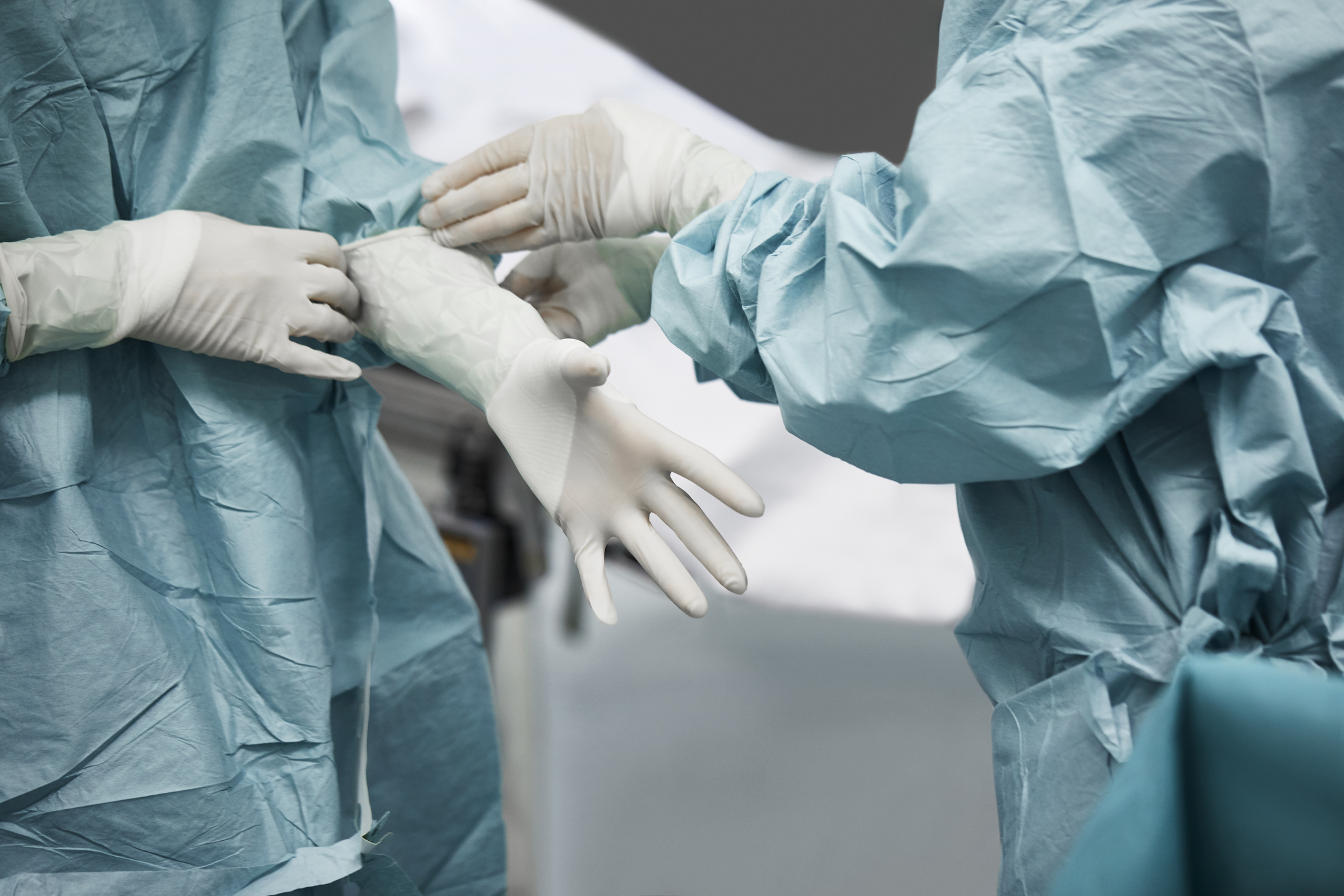I work in the pediatric department at Mount Sinai Hospital as an administrative assistant and receptionist. I am the first person these patients see when they walk in and the last when they return home. When this pandemic first started, every day was a different story, a different stress. All that mattered was, “How are we going to take care of the babies?” The parents couldn’t understand why we were canceling appointments. Today I am working on a list of 4,355 people that we had to cancel and are now trying to rebook to care for their needs.
Our department never closed because we get babies every day, but we had to adjust the way we were working to make sure we were keeping everyone safe. Aside from my usual responsibilities, I was taught how to take temperatures and blood pressure so I could help in a larger capacity. A lot of the moms that are coming in to give birth are COVID-positive. We are immediately told, “Okay, mommy’s positive.” We then send her upstairs to a separate area and make her comfortable. Patients are coming in scared, but we do our best to ease their anxieties — try to joke around with them, laugh with them, and let them know we are there every step of the way.
We’ve put new protocols together, learned new skills, and are covering more days — sometimes six, seven, or more days in a row with only one day break in between. I was eager to help and wanted to take on as much as I could, but because I live in New Jersey and the hospital is in New York City, getting to work was becoming almost impossible.
Not only that, but I have a 28-year-old son who lives with me and was terrified I’d get him sick. After work, I would strip down at the front door, jump in the shower, and just try not to touch anything. I would stay in my room, he would stay in his — but that fear was increasing, especially knowing I would be going into work each day.
Then, the busses that I take to work — the only transportation that went into the city from where I live — were canceled. Suddenly, there was no way for me to get to work. For the first 10 days, a colleague let me stay on her couch. As I was constantly interacting with COVID patients, I was worried I’d get her infected.
The hospital sent an email around about the #FirstRespondersFirst — an initiative supporting first responder healthcare workers with a range of needs — including accommodations — as they serve on the front lines of the pandemic. I jumped on it immediately. Within an hour of applying, I had a confirmation at the Algonquin, a hotel that’s part of the Marriott family. If I didn’t have this hotel, I wouldn’t have known how to get to work and I would have been continuously exposing my son.
The people at the Algonquin have been nothing but amazing. I speak to the staff every day when I come back from work — they welcome me, give me coffee and water. This hotel is full of essential workers. I go downstairs and everyone in the lobby is getting ready to go to work — you can see the stress on their faces, but at the same time, they smile and laugh amongst themselves because they have a place to sleep. This program has brought me such peace.
The pandemic, as a whole, has changed the way I see my job. We’ve all complained about our jobs in the past — there’s not one person on this planet that doesn’t complain. But now, I am so thankful to be alive, working and seeing how we are helping others. It’s changed my perspective.
People ask me if I’m nervous about getting sick. Honestly? No, I’m not. I can’t live in fear worrying something will happen to me because I’d never get out the door. I go to work everyday knowing that I’m helping others — that is what matters. I want to go home, I miss my son, but I am taking it day by day — and today was a good day.
—as told to Lindsey Benoit O’Connell
Conceived by Harvard T.H. Chan School of Public Health, Thrive Global, and the CAA Foundation, #FirstRespondersFirst is an initiative created to provide first responder healthcare workers, ranging from minimum-wage hourly workers in home care settings to social workers, nurses, physicians, and beyond, with physical and psychological resources they so desperately need as they serve on the front lines of the COVID-19 pandemic.


